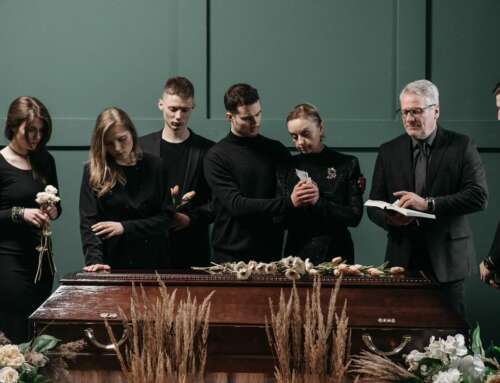Understanding Funeral Service Roles: Mortician, Undertaker, and Funeral Director
The realm of funeral services can seem complex, especially when terms like mortician, undertaker, and funeral director are used interchangeably. Are they the same thing? Actually, there are subtle differences. Let’s break down these titles to better understand each role in this essential profession that pays tribute to life’s final journey.
Exploring Each Term
Have you ever puzzled over the distinctions between a mortician, an undertaker, and a funeral director? You’re not the only one. It’s common for these terms to be used as if they were synonyms, which only adds to the confusion.
These days, ‘funeral director’ is the term you’ll hear most often. These professionals take care of tasks related to funeral rites like embalming, burial, or cremation arrangements, but they typically don’t conduct services unless there’s no clergy available. They might also help prepare bodies for viewing.
The term ‘undertaker’, which carries a more British flavor, has duties similar to those of a funeral director. However, because of the term’s gloomy association with death, it has been replaced in many instances by ‘mortician’, which came into use following a competition by the trade magazine The Embalmers’ Monthly in 1895.
On the other hand, embalmers are professionals with specialized skills who prepare the deceased’s body for viewing and delay decomposition.
In this line of work, it’s vital for professionals to be licensed and adhere to their field’s health and safety standards. This respect for the dead and assistance to their families during the memorial service is crucial, regardless of the size of the ceremony.
Duties of Morticians, Undertakers, and Funeral Directors
In larger organizations, roles are more defined. The “funeral director” is often the owner, while the “mortician” takes care of body preparation. These professionals might collectively be referred to as “undertakers”, a term that speaks to their shared role in caring for the deceased.
In smaller settings, these titles become more fluid. Everyone involved works on all duties, from handling initial calls from grieving families to arranging detailed memorial services and handling lots of paperwork.
These professionals provide essential support in navigating death and grief, offering guidance and help when it’s most needed. Their role can alleviate some of the stress during such demanding times, allowing mourners to focus on saying their goodbyes surrounded by love.
Professional Titles in the Field
Embalmers are professionals who perform embalming, or the process of maintaining a body’s appearance after death. This involves draining bodily fluids and replacing them with chemicals that delay decomposition.
Even though embalmers often work behind the scenes, their contribution to funeral services is vital. Different licenses and training are typically required for funeral directors and embalmers due to the variations in their job responsibilities.
Sometimes, a person can serve in multiple roles, acting as both director and embalmer, depending on their aspirations or local regulations. However, of all the terms mentioned, ‘Funeral Director’ is currently the preferred title as it represents current practices and respects the dedication of these workers.
Important Certifications and Licenses
The certifications and licenses required for morticians, undertakers, and funeral directors can vary. Each state sets its own regulations for the industry, maintaining ethical standards. In most cases, a license is required, which involves prerequisite education and rigorous written and practical exams.
Becoming a Certified Funeral Service Practitioner can greatly enhance your credibility in this field. This certification is offered by The Academy of Professional Funeral Service Practice, emphasizing the importance of maintaining high standards.
Other recognized certifications include the National Board Certification by The International Conference of Funeral Examining Boards and the American Association of Crematory Certification. Aspiring funeral professionals are encouraged to review the requirements of their preferred licensing body carefully.
Cost Differences Between Each Option
The cost of services largely depends on the specific services chosen and local market rates. In general, a Funeral Director tends to be more expensive due to their role in overseeing all aspects of a funeral.
If you opt for an undertaker’s assistance, who is usually only responsible for body transportation and burial, costs might be lower. Meanwhile, employing a Mortician or Funeral Director to handle the preparation of the body before burial will typically incur additional costs.
However, these costs can vary greatly based on factors like location or specific service requirements. As there’s no standard pricing model, it’s important to assess individual needs and compare quotes to ensure the best value while honoring your loved one appropriately.
Understanding the roles of funeral professionals can make it easier to navigate end-of-life services. Morticians handle embalming and restoration, undertakers oversee all aspects of a funeral service, and funeral directors manage everything from paperwork to final ceremony arrangements.
At Cunningham Turch Funeral Home, we have knowledgeable staff in each role, ready to provide comfort and support during challenging times.







This blog provides an insightful breakdown of the roles in the funeral service industry, clarifying the differences between morticians, undertakers, and funeral directors. It’s not only educational but also helps demystify these terms that are often used interchangeably. Understanding these roles is essential when dealing with end-of-life services. Thanks for shedding light on this topic!